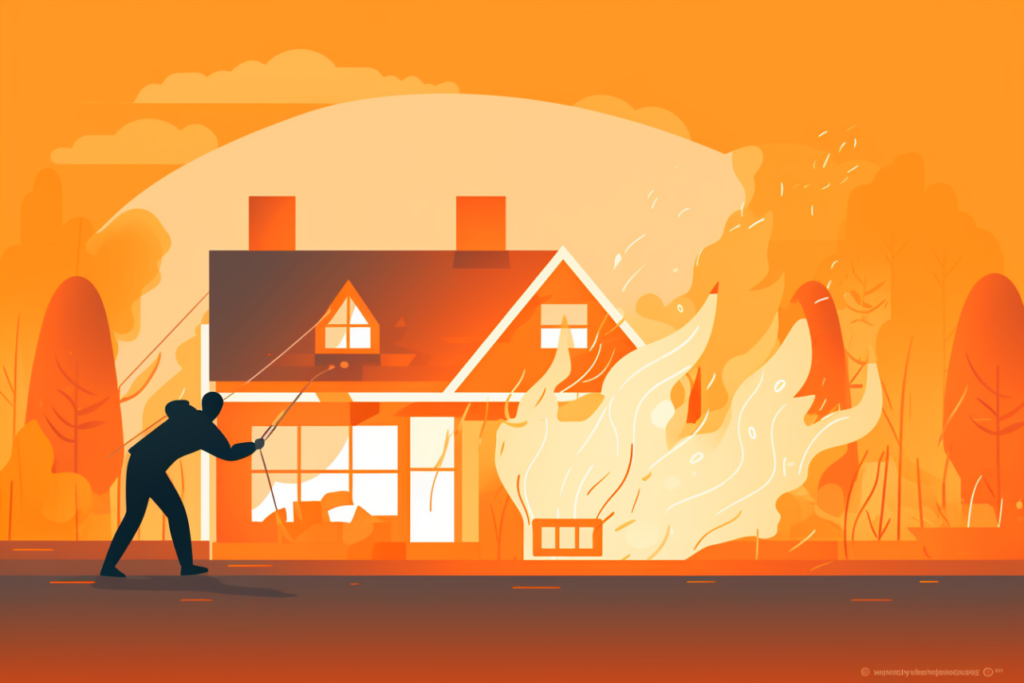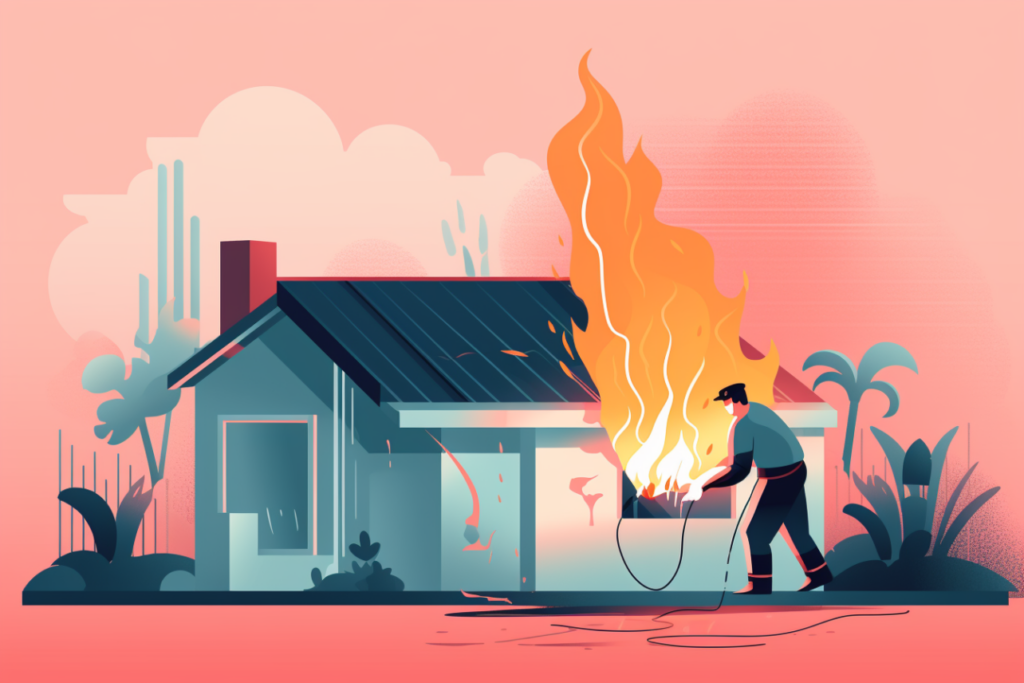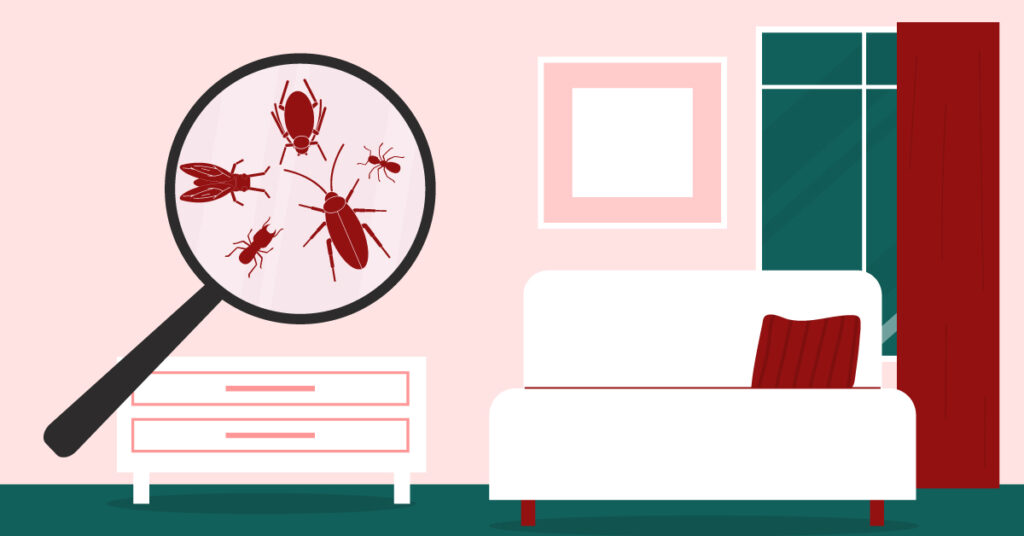Electrical fires can be extremely dangerous and potentially life-threatening if not handled properly. In the event of an electrical fire, it is important to act quickly and follow the proper steps to extinguish it safely. With winter approaching, that also makes it the most common time of the year for electrical fires.
This blog post aims to provide a comprehensive guide on effectively putting out an electrical fire while emphasizing the importance of prioritizing personal safety and preventing such incidents.
Understanding the Causes of Electrical Fires
Electricity is an integral part of our day-to-day lives, powering everything from our homes to our workplaces. While electricity is essential, it can also be hazardous, especially when electrical systems are not well-maintained or become overloaded.
The most frequent culprits of electrical fires are:
Faulty Outlets and Appliances: Most electrical fires happen because of faulty electrical outlets and old, outdated appliances. Worn or frayed cords can easily spark and start a fire.
Light Fixtures: Using a bulb with too high wattage for a light fixture or lamp can cause a fire. Always remember to check the maximum recommended bulb wattage and adhere to it.
Extension Cords: Misusing extension cords is a major fire risk. Extension cords are meant for temporary use, but many use them permanently. Adding a new outlet is safer than over-rely on extension cords.
Space Heaters: These are a primary cause of electrical home fires. Many space heaters have coils that get incredibly hot, and if they come into contact with flammable furnishings like curtains, bedding, or upholstered furniture, a fire can ignite.
Wiring: Outdated wiring often can’t handle the electrical demands of modern homes, leading to potential risks. If your home is 20 years old or older, it may not have the wiring capacity to handle the increased electrical appliances in today’s average home.
Electrical Distribution Systems: This includes problems related to circuit breakers, fuses, and switchgear. Sometimes, circuit breakers don’t trip, leading to an overload, which can start a fire.
Portable Generators: Improper use of portable generators can lead to fires. It’s essential to ensure they are used correctly and safely.
Circuit Overloads: Overloaded circuits can cause fires. If lights dim when you use another appliance or breakers are tripping or blowing fuses, it’s time to check for possible circuit overloads.
Outdated Circuit Breakers: Older-style circuit breakers were designed many years ago. Technology and safety requirements have changed, making some older breakers unsafe by today’s standards.
Improper Installation: DIY projects or electrical systems installed without adequately understanding or following safety codes can be significant fire risks. Always hire a qualified electrician for electrical work.
Arc Faults: These occur when an electrical wire becomes broken, worn out, or has a weak connection, causing it to spark or arc. The resulting heat can ignite nearby flammable materials. Arc-fault circuit interrupters (AFCIs) can prevent this kind of fire.
Flammable Materials: Keeping electrical appliances or outlets too close to flammable materials can be a fire risk. Keeping clothing, curtains, toys, and other flammables at a safe distance is essential.
Preventing Electrical Fires
Taking a few precautionary measures can significantly reduce the risk of fire. Regularly inspecting and maintaining electrical systems, avoiding overloading outlets, using proper extension cords, and promptly repairing any electrical damages or faults are essential to ensure safety.
Reacting to an Electrical Fire

It is easy to activate a freeze response during a threat, trauma, or emergency, which can happen to many people during a fire. But understanding the steps to take and how to put it out or get help is vital to keeping you and your family safe in the event of an electrical fire.
Prioritize Your Safety
Regardless of the size of the electrical fire, personal safety should always be the number one concern. When you spot an electrical fire, act quickly but calmly. Avoid panicking or attempting to extinguish the fire if your safety is compromised. Always follow established emergency procedures, evacuate the building, and call the fire department.
Disconnect Power
If it is safe to do so and the fire is small, try to disconnect the electrical power to the source of the fire. This can be done by shutting off the electrical panel or removing the plug from the outlet. This step helps further prevent the fire from being fueled and reduces the risk of electrocution.
Utilize a Class C Fire Extinguisher
Only attempt to use a fire extinguisher if you have been trained to do so and have easy access to the correct type of extinguisher. In the case of an electrical fire, a Class C fire extinguisher is the appropriate choice. This type of extinguisher is specifically designed for electrical fires and contains non-conductive substances to suppress the flames.
Smother the Fire
Smothering the flames can be an effective measure if a fire extinguisher is not readily available or the fire cannot be controlled. Use a non-flammable material such as a heavy blanket, fire-resistant rug, or thick coat to smother the fire carefully. Remember never to use water to extinguish an electrical fire. Water can actually conduct electricity and potentially make the situation worse.
Evacuate Safely
Even if you manage to put out the fire or control it to a certain extent, it is essential to evacuate the building safely. Electrical fires can easily reignite, and the accumulation of smoke or toxic fumes can seriously threaten your health. Ensure everyone is clear from the premises and wait for professional assistance to arrive.
After the Fire
Once the electrical fire has been successfully extinguished and the situation has been deemed safe, it is vital to assess the damage and take necessary actions. Contact a qualified electrician to investigate the fire’s cause and thoroughly inspect your electrical systems. Additionally, inform your insurance company about the incident and provide any relevant documentation for potential claim purposes.
Electrical Fire FAQs
Keep reading to learn more about the most commonly asked questions regarding electrical fires.
What are the signs of an electrical problem that could lead to a fire?
Flickering lights, buzzing sounds from outlets, a burning smell, frequently tripped circuit breakers, discolored wall outlets, or shocks when touching appliances can be indicators.
Are certain appliances more likely to cause electrical fires?
Any appliance can cause a fire if it’s faulty or misused. However, space heaters, toasters, and electric stoves are common culprits if left unattended or near flammable materials.
How often should I check my home’s electrical system?
It’s wise to have a licensed electrician inspect your home every 3-5 years or if you notice any signs of electrical issues.
Is outdated wiring a major fire risk?
Yes, homes with wiring over 20 years old might not meet current safety standards and can be more susceptible to electrical fires.
Can overloading power strips cause a fire?
Yes, overloading power strips or using damaged ones can result in an electrical fire. It’s important to use power strips with a circuit breaker and avoid overloading them.
How can I safely use extension cords?
Use them temporarily, avoid running them under carpets or through doorways, ensure they’re rated for the devices you plug into them, and never daisy-chain them (plugging one extension cord into another).
How do I know if my electrical outlets are safe?
Outlets shouldn’t be loose, and plugs should fit snugly. It could indicate an issue if you notice any discoloration or feel warmth.
Handling an electrical fire requires knowledge, calmness, and quick thinking. In the event of such an emergency, prioritizing personal safety and knowing how to respond can make all the difference. Preventing electrical fires through regular maintenance and proper usage of electrical systems is crucial to avoid such incidents altogether. Remember, the best way to deal with an electrical fire is to prevent it from happening in the first place by practicing good electrical safety habits.
You might also be interested in: How To Change Your Smoke Detector Battery [And 5 Safety Tips]




